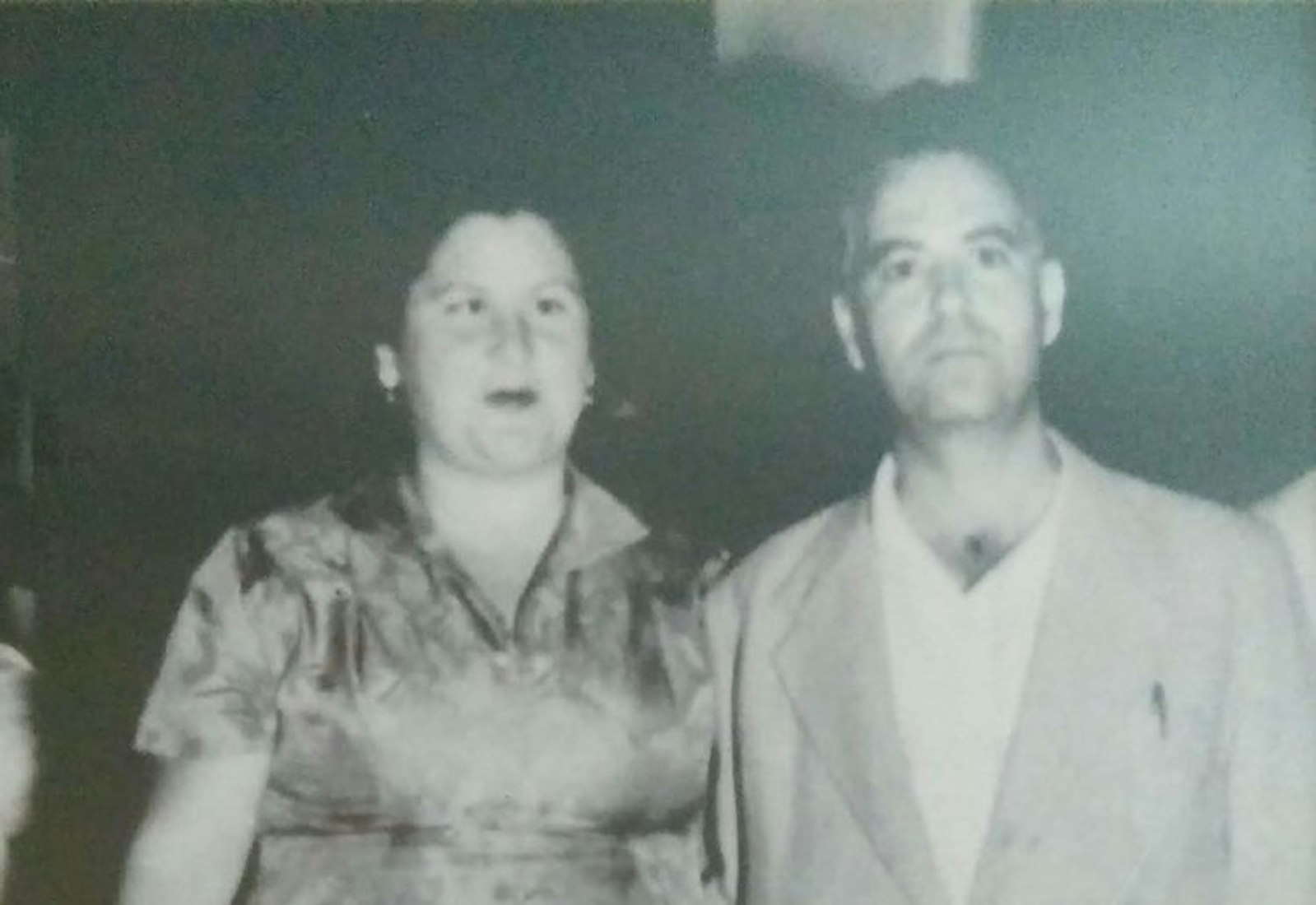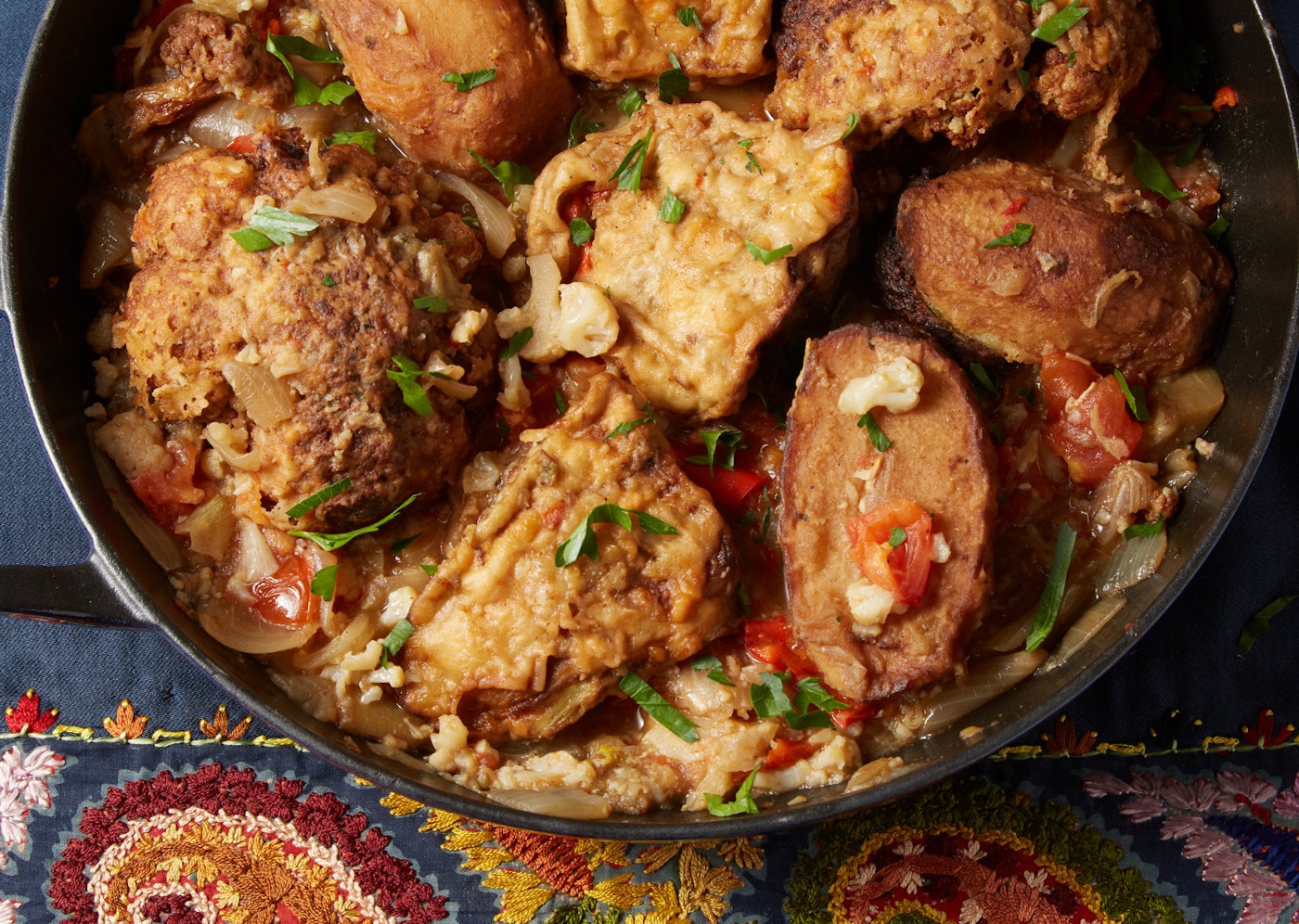Shared by Nitza Kardish

As a child in the 1950s, living in Ashkelon, a city an hour south of Tel Aviv along Israel’s coast, Nitza Kardish would say her family was from a kibbutz. “I used to lie,” she explains. Her parents had immigrated to the young country from Libya. They were Zionists and “they didn’t have any problem with coming from Libya, because they came with their self esteem,” she says. Still, they walked a complicated line, trying to balance a pride in where they came from with a desire to integrate into a new society. “This kind of feeling was transferred to us,” Nitza says of her and her seven siblings. “My father told us: ‘If you want to be successful you have to be like them, the sabras,” the Hebrew term for a native-born Israeli.
An exception was in the kitchen and the garden in their home where Nitza’s mother Maloo celebrated Libyan recipes she learned from her sister-in-law when they lived together in Tripoli. When Nitza was very young, their family home was so small that most of the cooking took place outside in their garden where her mother moved a table for chopping vegetables and left dishes to cook over a low flame for a few hours. “It was a direct dialogue between [the] garden and the kitchen,” Nitza explains. Later, when they moved to a home with a larger kitchen, her mother started to drape foods from the ceiling to dry, peppers and garlic. “It was very colorful,” she remembers.
Fridays were reserved for Shabbat cooking. In Maloo’s kitchen that meant fish prepared in a piquant sauce called chraime, brodo or broth, a remnant of the Italian occupation of Libya, hand-rolled couscous, and mafrum, a Libyan stuffed vegetable dish. Maloo would slice potatoes, eggplant, and if it was a special occasion, cauliflower. The vegetables were then stuffed with an herbed meat blend, fried, and finished in a sauce in a crowded pan. Maloo would say: “Every mafrum finds its home.” For dessert, thin slices of kohlrabi and fennel were splashed with lemon and a sprinkling of salt as a digestif, and in the winter or at small celebrations, it was accompanied by sweet tea topped with roasted peanuts.
As Nitza and her siblings grew up and moved out of their parents’ home to build their own families, Maloo carried on with the Friday cooking inviting her sons and their children for afternoon couscous and her daughters and their families for Friday night dinner of mafrum. Some weeks there were as many as 30 people at the table, Nitza recalls. It was a tradition Maloo kept up with until she passed away in her early 80s.
Today, Nitza is the family member who carries on Maloo’s recipes including the mafrum. Her mother never formally taught her to make the dish. She used to say: “whoever has eyes and brains, observes and does what others are doing.” Nitza picked up not only the recipe but her mother’s mannerisms in the kitchen.
When her siblings miss her mother’s food they ask her to cook, saying “Yalla, Nitza do some mafrum.” When she does, her brothers say they can see their mother in the kitchen.
